Nearly all active-duty members of the Air Force and Space Force complied with the mandate to be fully vaccinated against the coronavirus by Nov. 2, but almost 8,500 troops did not — and are now in danger of being kicked out of the military.
Another 1,800 or so secured exemptions from the requirement, a spokesperson said Wednesday. In total, 10,352 active-duty airmen and guardians remain unprotected.
About 96 percent of 326,000 active-duty airmen and guardians — or almost 313,000 troops — had completed a two-shot regimen of the Moderna or Pfizer-BioNTech vaccines, or the one-shot Johnson & Johnson option, as of Nov. 3. Another 1 percent, or just over 3,200 people, have gotten the first of a two-dose series.
“Our airmen need to be prepared to operate anytime, anywhere in the world,” Air Force Chief of Staff Gen. Charles “CQ” Brown Jr. said in a release. “Getting vaccinated ensures we are a ready force to meet our commitments to the nation while protecting the health of our team and families.”
RELATED
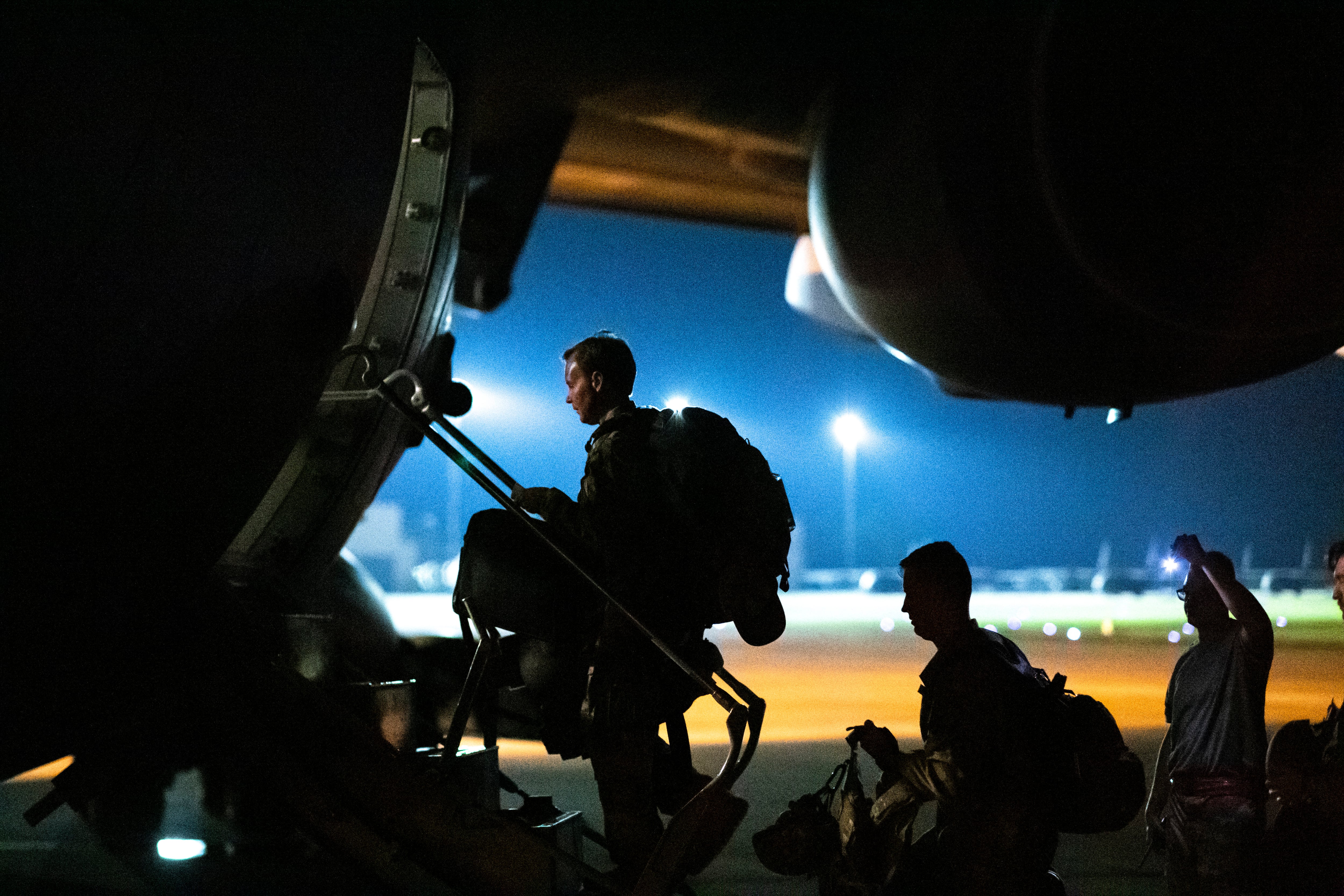
The Department of the Air Force is the first in the military to reach its self-imposed deadline for its active-duty members to be fully vaccinated.
The Department of the Air Force logged more than 73,000 COVID-19 cases as of Oct. 25, including nearly 43,500 among military personnel. About 140 troops, civilian employees, contractors and dependents have died from the virus.
Most active-duty airmen and guardians were inoculated by the time Defense Secretary Lloyd Austin directed the services on Aug. 24 to set their own mandatory vaccination timelines, as the virus’s delta variant swept through the country and primarily sickened those who had dodged illness before and weren’t inoculated.
Nearly 100,000 people were vaccinated in the two months that followed Austin’s order, the Air Force said.
Nearly 416,000 of about 501,000 total Air Force and Space Force members — or 83 percent — were fully vaccinated as of Oct. 27, and another 70,000 had received the first of a two-dose regimen, according to Pentagon data.
That left about 85,000 uniformed members who needed to roll up their sleeves. As of Wednesday, data indicates about 37,400 people crossed the line into full vaccination in the week leading up to the first deadline.
About 90 percent of active-duty, Air National Guard and Air Force Reserve members are now fully vaccinated, with nearly 4 percent who have started but not finished the process.
The deadline for Air Force and Space Force civilians to be fully protected is Nov. 22, followed by the Guard and Reserve on Dec. 2 and contractors by Dec. 8.
RELATED
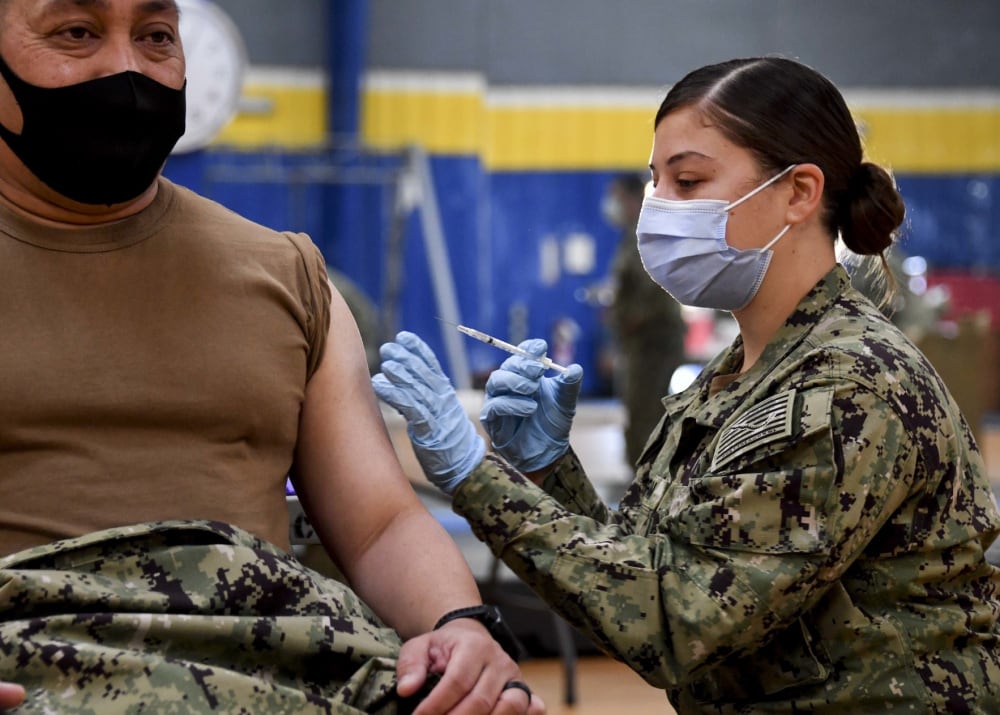
Of the 10,352 active-duty airmen and guardians who remain unvaccinated, about 2,800 haven’t started the process at all. Another 800 have verbally refused, the Air Force said.
So far, the Department of the Air Force has approved 1,866 exemptions to the vaccination requirement, largely for medical reasons. Thousands more await a decision on whether they can opt out.
Almost 5,000 religious exemption requests were submitted and are being processed now, the Air Force said. None have been granted so far.
“Over the next 30 days, the Department of the Air Force will review requests for medical exemptions and religious accommodations,” the service said. “Appeals are determined by the DAF’s Surgeon General with inputs from the chaplain and staff judge advocate.”
More than 1,600 troops have garnered medical exemptions for issues like potentially severe allergic reactions and pregnancy. Another 232 people received administrative exemptions in cases where they are preparing to leave the service and want to avoid the mandate before that point.
Service spokesperson Ann Stefanek said the service doesn’t track the number of medical and administrative exemption requests that are denied.
“Individuals do not have to get immunized as long as their request is in the process of being decided,” the Air Force added.
“COVID-19 screening testing will be required at least weekly for all individuals entering a DoD facility who are not fully vaccinated, including those who have an exemption request under review, or who are exempted from COVID-19 vaccination,” the Air Force said.
RELATED
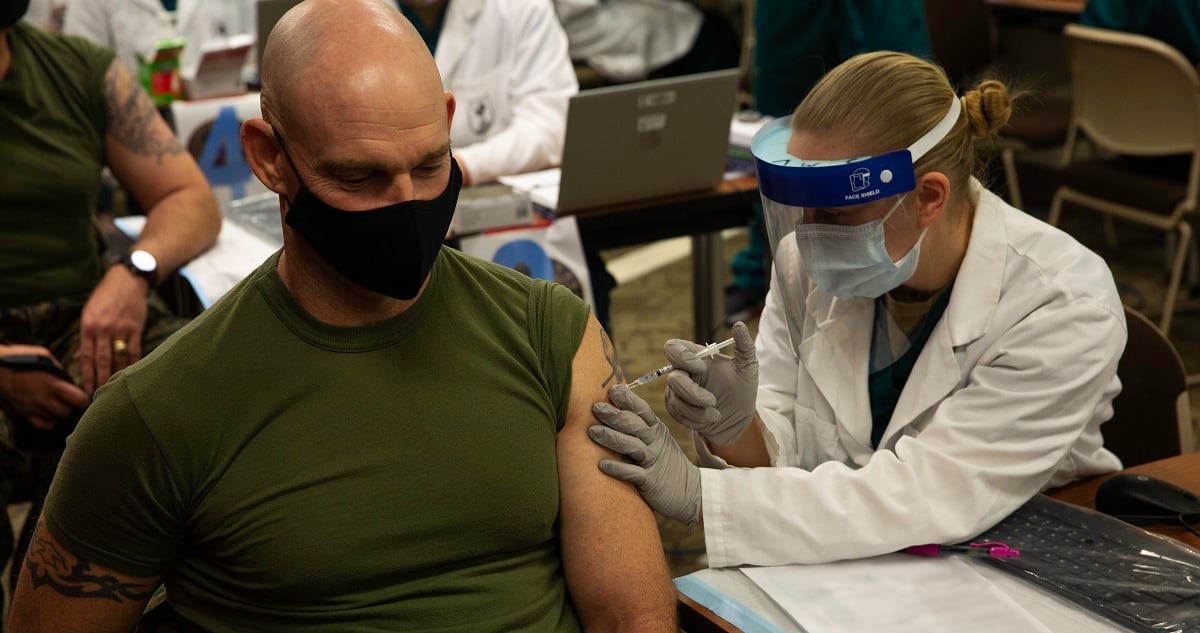
Now the service begins the complicated process of disciplining airmen and guardians who face expulsion.
How quickly troops can be kicked out for refusing to follow the vaccination order depends on factors like how long they have served, whether their commanders have already started issuing letters of reprimand and other punishments, and whether they are still awaiting a verdict on an exemption request.
“Commanders retain the full range of disciplinary options available to them under law and policy, some of which includes issuing administrative paperwork, imposing nonjudicial punishment or referring court-martial charges,” the Air Force said Oct. 20.
The Air Force had already discharged about 40 people from basic military training and technical training as of the end of October, about half of whom were in boot camp. The COVID-19 vaccine joins more than a dozen others that Americans must receive in order to join the military.
Active-duty and Air Force Reserve airmen and guardians who applied to retire or separate from service rather than be vaccinated needed to obtain their commander’s approval before Monday. If approved, active-duty members must leave by April 1, and reservists by June 2.
The Air Force recorded almost 5,700 retirements and separations among active-duty officers and enlisted members in September and October, though Stefanek said it’s too early to see whether the mandate prompted an increase in those requests.
RELATED
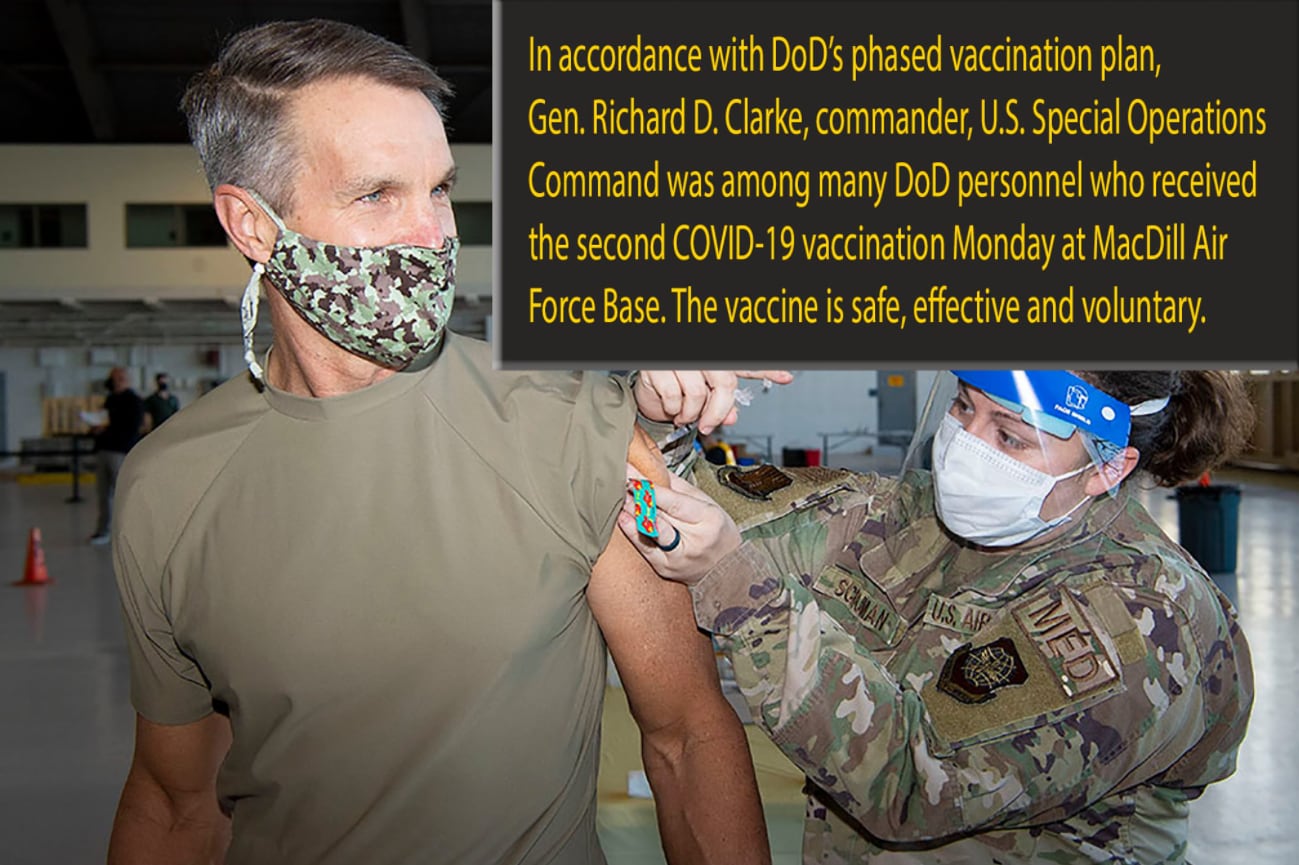
Troops can seek waivers for their active-duty service commitments as they try to leave, but those won’t automatically be granted. Airmen and guardians may also have to repay bonuses or education funds for cutting their commitment short.
Requests to retire or separate can also be turned down in cases where an airman works in a short-staffed or high-importance field, for example. Those whose attempt to leave is denied, and who haven’t received a religious or medical exemption, must get a COVID-19 vaccine.
“Getting COVID-19 may offer some natural protection, but experts don’t know how long this protection lasts, and the risk of severe illness and death from COVID-19 far outweighs any benefits of natural immunity,” the Air Force said. “Vaccination will help protect you by creating an antibody (immune system) response without having to experience sickness.”
Stefanek downplayed fears that potentially losing thousands of unvaccinated members would deliver a blow to military readiness.
“We have approximately 326,000 airmen and guardians in the Department of the Air Force and only 1 percent of those personnel have not received a vaccine or requested an exemption,” she said in an email Wednesday. “We continue to meet our recruiting goals and do not expect mission impact as a result of the refusals.”
The Centers for Disease Control and Prevention said Oct. 29 that unvaccinated people who were recently infected with the coronavirus were five times more likely to catch the virus again than those who were fully vaccinated without a prior infection.
RELATED
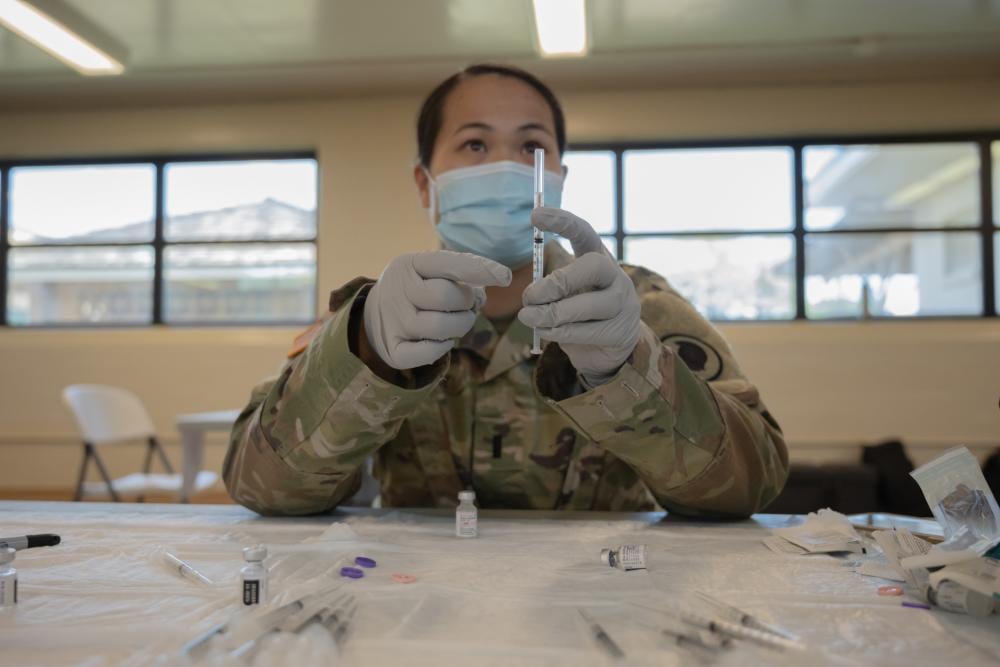
Unvaccinated Americans are 4.5 times more likely than the fully vaccinated to contract the virus, more than 10 times more likely to be hospitalized and 11 times more likely to die, the CDC said in September.
Almost 424 million shots have been administered since they became available late last year, and 78 percent of Americans over age 12 have received at least one dose, according to the CDC. The United States has logged more than 46 million COVID-19 cases and 745,000 deaths in the pandemic so far.
Vaccines are still available to those who have changed their minds about not wanting the shot.
“We are not in the clear yet. Continuing safe practices to protect ourselves and others should always be in our cross-check,” Chief Master Sergeant of the Air Force JoAnne Bass said.
Editor’s note: This story has been updated to correct the total number of unvaccinated active-duty airmen and guardians, including those who’ve received exemptions.
Rachel Cohen is the editor of Air Force Times. She joined the publication as its senior reporter in March 2021. Her work has appeared in the Washington Post, the Frederick News-Post (Md.), Air and Space Forces Magazine, Inside Defense, Inside Health Policy and elsewhere.









